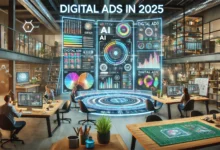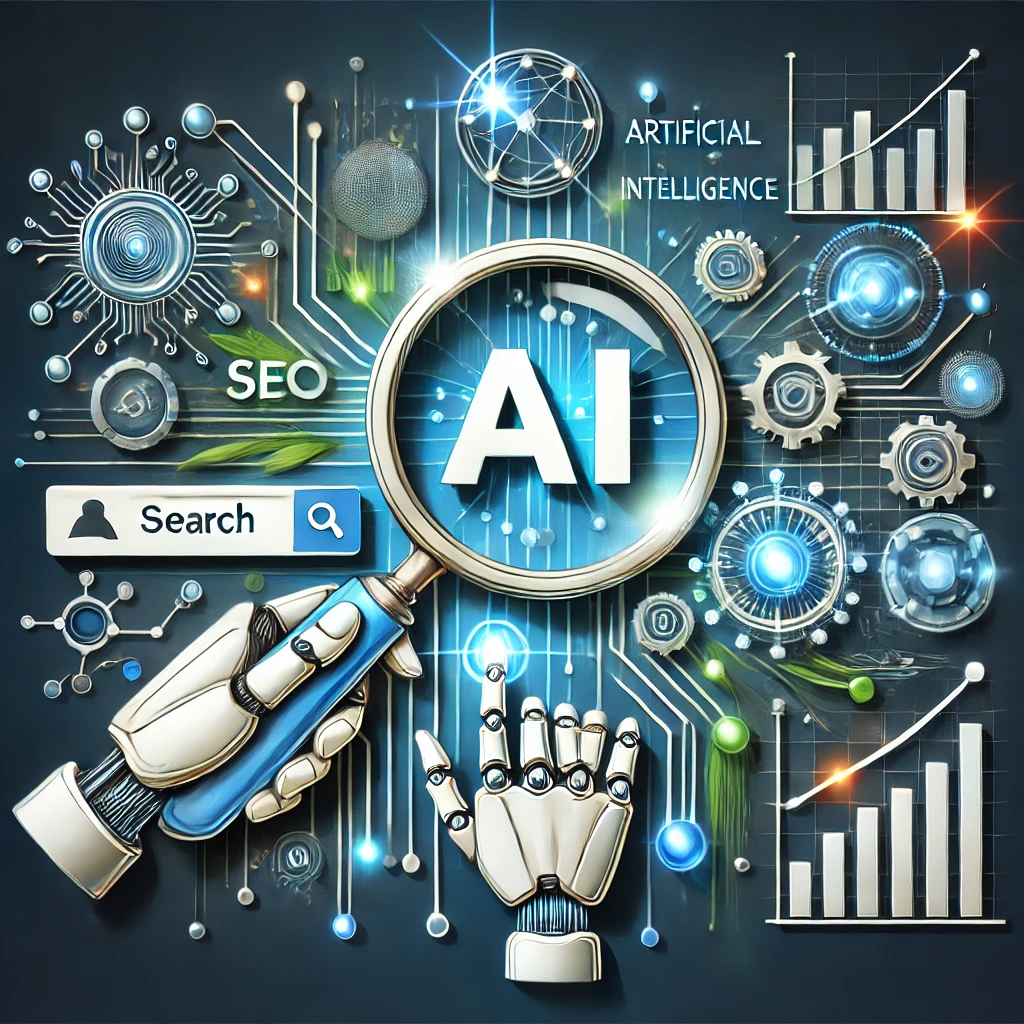Human-AI Collaboration in a Digital World

Navigating the Future of Human-AI Collaboration in Content Marketing
In the fast-paced world of digital marketing, content creation has evolved far beyond traditional methods. Today, the fusion of artificial intelligence (AI) and human creativity is transforming the way brands approach content. While AI streamlines tasks like content scheduling, data analysis, and even generation, the most successful brands recognize that AI is not a replacement for human ingenuity—it’s a powerful partner.
Human-AI partnerships in content marketing combine the speed and precision of AI with the emotional depth and storytelling that only humans can offer. By leveraging AI tools for efficiency, brands can focus their efforts on crafting content that connects with audiences on a personal level. This dynamic collaboration allows businesses to produce content that not only meets high demands but also resonates deeply with consumers.

In this article, we explore the transformative power of human-AI collaboration in content marketing in 2024, illustrating how these partnerships are setting new standards for creative, efficient, and engaging content strategies.
AI as a Powerful Efficiency Tool in 2024 Content Marketing
In an era where demand for fresh, high-quality content is skyrocketing, artificial intelligence (AI) has become an essential tool for marketers. But AI is more than just an automation tool—it’s a game-changer for streamlining data-heavy tasks and boosting productivity. By handling routine processes, AI empowers content creators to focus on high-level strategy, creativity, and audience engagement.
1. Data Analysis and Trend Identification
One of AI’s biggest strengths is its ability to quickly analyze vast amounts of data, uncovering actionable insights that shape content strategies. Tools like HubSpot’s Content Strategy and Google Analytics, enhanced with AI features, help marketers track trends, assess audience preferences, and identify content gaps. This predictive capability enables brands to stay ahead of the curve by delivering timely, relevant content that resonates with their audience.
By integrating AI into data analysis, content teams can make data-driven decisions faster, allowing for hyper-targeted content that drives engagement and loyalty.
2. Automating Repetitive Tasks
Consistency is key in content marketing, and AI shines when it comes to handling repetitive tasks. From scheduling posts to conducting keyword research, AI-powered tools like ChatGPT and Jasper save marketers countless hours by automating essential yet time-consuming processes.
For example, AI can:
- Suggest optimized posting times.
- Identify popular keywords and hashtags.
- Generate draft content based on brief inputs.
This automation frees up time for content teams to focus on creative tasks and strategic planning, ensuring their campaigns are not only consistent but also highly effective.
3. Personalized Content Recommendations
Personalization is becoming the cornerstone of successful marketing. AI-powered engines excel at delivering personalized content recommendations, analyzing user behavior and preferences in real-time. Leading platforms like Netflix, Amazon, and Spotify use these algorithms to keep users engaged with content tailored to their interests.
For marketers, these tools offer the ability to provide hyper-personalized experiences, driving user satisfaction and retention by presenting the right content at the right time. As AI continues to evolve, this level of personalization will become even more precise, helping brands build deeper connections with their audiences.
Human Creativity: The Irreplaceable Element in Content Marketing
While artificial intelligence can handle data analysis, automation, and content suggestions with ease, there is one crucial area where it falls short: creativity with a human touch. True storytelling, emotional resonance, and understanding cultural nuances are deeply human skills that AI has yet to fully replicate. These elements are essential for creating meaningful connections with audiences and building brand loyalty.
1. Storytelling and Emotional Resonance
AI can structure content, but it lacks the empathy and emotional intelligence that makes storytelling impactful. Authentic narratives tap into human emotions, engaging audiences on a deeper level. Marketers use emotional cues, personal anecdotes, and relatable characters—elements that AI struggles to replicate—to create content that goes beyond mere information and truly resonates with the audience.
For example, content that evokes nostalgia, humor, or empathy can form lasting emotional connections, turning readers into loyal customers. This type of storytelling requires a human touch that AI simply cannot provide.
2. Maintaining Brand Consistency and Voice
A consistent brand voice is vital for building a recognizable identity. Although AI can mimic past content to some extent, it often lacks the subtlety needed to maintain a brand’s unique personality. Human marketers play a key role in ensuring that each piece of content aligns with the brand’s voice and speaks authentically to the audience.
For instance, a fashion brand with a playful tone will differ vastly from the formal, authoritative voice of a financial institution. While AI can assist in drafting content, it requires human oversight to ensure that these nuances are preserved, keeping the content true to the brand’s identity.
3. Cultural Sensitivity and Contextual Awareness
AI tools are limited by the data they are trained on, which can lead to tone-deaf or insensitive content if not carefully managed. Cultural sensitivity and contextual awareness are critical, especially in today’s diverse, global market. Human creators bring a deep understanding of social nuances, cultural trends, and current events, which can make the difference between content that resonates and content that alienates.
Human oversight helps prevent missteps that could harm a brand’s reputation, ensuring that marketing campaigns are culturally relevant and sensitive to audience values. By combining AI’s efficiency with human emotional intelligence, brands can create content that is both impactful and inclusive.

Case Studies: Successful Human-AI Collaborations in Content Marketing
Real-world examples reveal how businesses are leveraging the strengths of AI alongside human expertise to craft impactful marketing strategies. These case studies demonstrate how Human-AI partnerships are driving innovation in content marketing, helping brands achieve efficiency while maintaining creativity and emotional resonance.
1. The New York Times: Data-Driven Insights with a Human Touch
The New York Times uses AI to analyze audience preferences, providing writers with data-driven insights into trending topics and preferred content formats. AI tools help sift through vast amounts of reader data—such as engagement metrics and browsing patterns—allowing the editorial team to create stories that cater directly to audience interests.
However, the final content still relies heavily on human journalists who shape these insights into high-quality articles, combining AI’s analytical power with nuanced storytelling. This blend of technology and human creativity has led to more targeted, engaging content, strengthening reader loyalty.
2. Coca-Cola: Personalized Content Creation for Global Markets
Coca-Cola has mastered the art of large-scale, hyper-personalized marketing by integrating AI into its content creation process. AI tools help the company generate thousands of ad variations tailored to specific demographics, regions, and even cultural contexts.
Yet, to ensure each ad resonates emotionally, Coca-Cola’s marketing team steps in to refine and customize the messaging. Human content creators ensure that cultural relevance, tone, and emotional appeal are aligned with local traditions and values. This hybrid approach allows Coca-Cola to quickly adapt content across global markets while maintaining authenticity and emotional impact.
3. HubSpot: Automated Workflows with Human-Driven Strategy
HubSpot leverages AI to automate workflows such as lead scoring, email marketing, and personalized content recommendations. AI tools help the company sort through user data and segment audiences based on behavior and interests, enabling more targeted communication.
However, HubSpot’s marketing team plays a crucial role in shaping the overall strategy. While AI handles the technical side of data segmentation, human marketers craft messages that align with the brand’s voice and objectives, ensuring that content feels personal and relevant. This combination of AI-driven efficiency and human insight allows HubSpot to scale its marketing efforts while maintaining a personalized customer experience.

Challenges and Ethical Considerations in Human-AI Content Marketing
While the integration of AI in content marketing offers numerous benefits, it also brings several challenges and ethical considerations. Ensuring transparency, fairness, and accountability is crucial, as AI lacks the ability to address these issues independently. Human oversight is essential to navigate the ethical complexities and ensure content integrity.
1. Transparency in AI-Generated Content
As AI-generated content becomes more prevalent, maintaining transparency is critical for building trust with audiences. Consumers increasingly want to know when and how AI is involved in content creation. Brands like Reuters and the Associated Press have begun openly disclosing the role AI plays in generating content.
This transparency not only reinforces credibility but also helps manage audience expectations. By being clear about the extent of AI’s involvement, companies can avoid misleading their audience while showcasing their commitment to ethical practices.
2. Addressing Bias and Ensuring Fairness
AI systems are trained on historical data, which can sometimes lead to biased or stereotypical content if not properly monitored. Without careful human intervention, AI-generated content could unintentionally perpetuate harmful biases or misrepresent certain groups. For instance, AI-driven ad campaigns or hiring processes have been known to favor specific demographics based on the biased data they were trained on.
To combat this, content marketers must actively monitor for bias, ensuring that AI-generated content is inclusive and reflects diverse perspectives. Human oversight helps identify and correct these issues before they impact the brand’s reputation or alienate segments of the audience.
3. Intellectual Property and Ownership Concerns
The rise of AI-generated content also raises questions about intellectual property (IP) and ownership. Who owns the rights to content created by AI— the user, the brand, or the developer of the AI tool? This legal gray area is still being defined, with platforms like OpenAI and Google working to establish content ownership and licensing guidelines.
Marketers must stay informed of the evolving legal landscape to navigate IP concerns correctly, particularly when using AI for original content creation. Understanding ownership rules is essential for protecting both the brand and creators.

Conclusion: The Future of Human-AI Content Creation Partnerships
The collaboration between humans and AI is redefining the future of content marketing. By combining AI’s ability to quickly process data, automate tasks, and provide personalized recommendations with human creativity, brands are crafting content that is both efficient and emotionally resonant.
AI tools help marketers stay ahead of trends and improve productivity, but the human element remains essential for storytelling, maintaining brand voice, and ensuring cultural relevance.
As AI continues to evolve, the most successful content strategies will maintain a balance between automation and creativity. Brands that harness AI’s efficiency without sacrificing the human touch will not only streamline their content production but also build deeper connections with their audiences. Ethical considerations—such as transparency, fairness, and intellectual property—will also play a critical role in shaping the future of AI-driven content marketing, ensuring that the use of these tools remains responsible and audience-centric.
Looking ahead, Human-AI partnerships will likely become the norm in content creation, offering endless possibilities for brands to scale their marketing efforts while maintaining authenticity and ethical standards. By continuing to embrace this dynamic collaboration, businesses can stay ahead in an increasingly competitive digital landscape.









One Comment